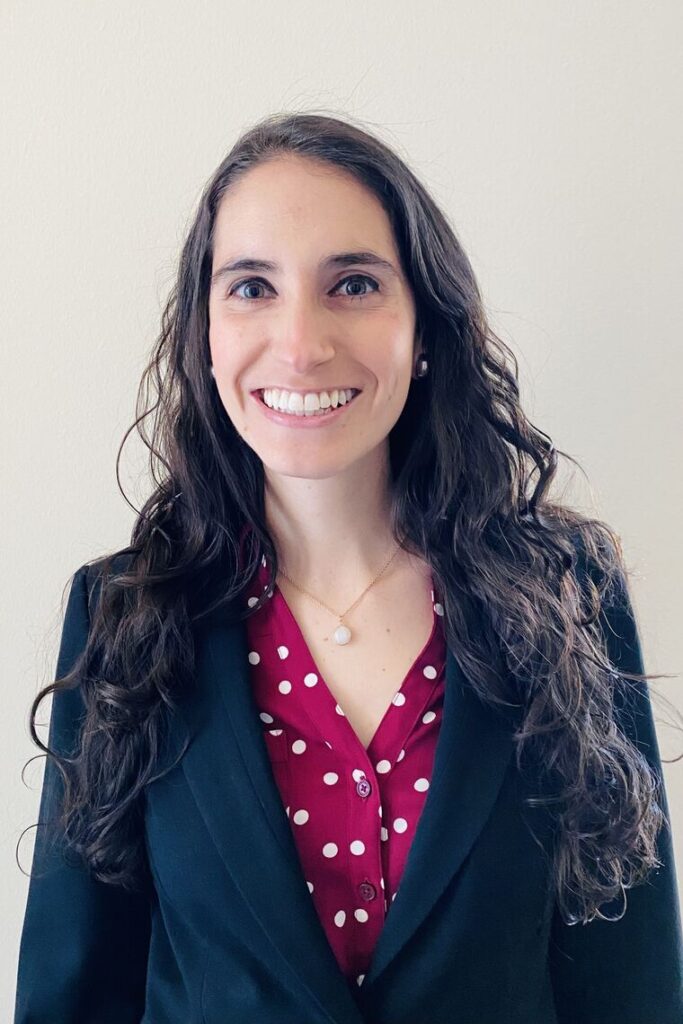- Fellow Highlights
Daniela Delgado: How I’m Shaping Culture
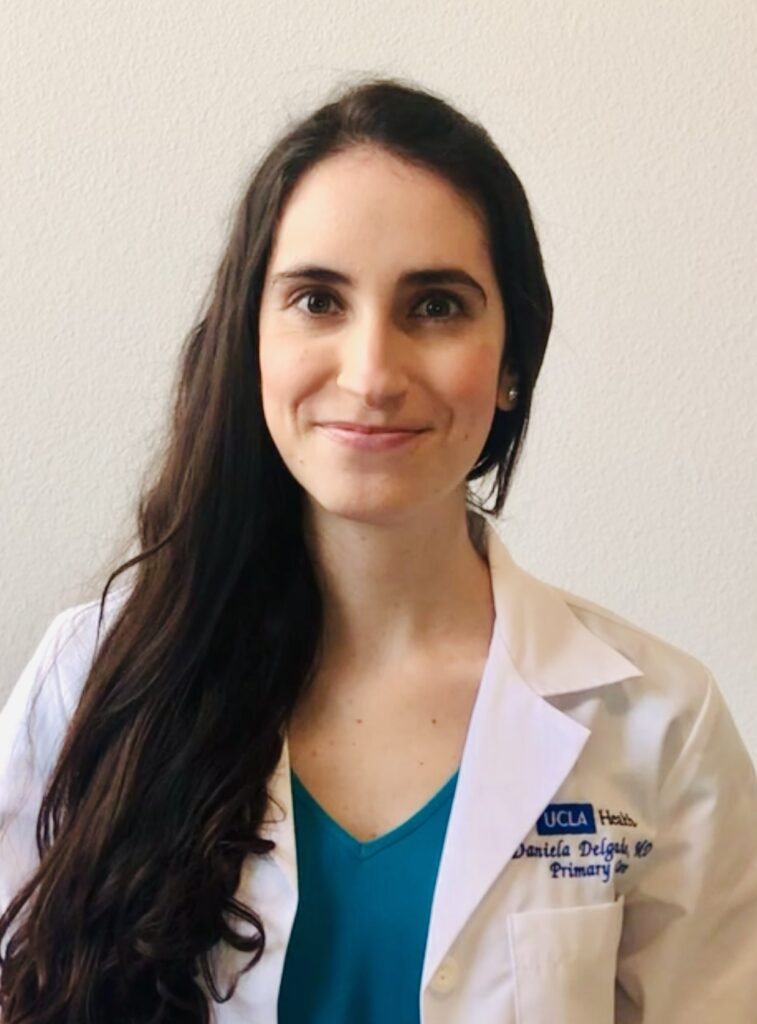
Paul & Daisy Soros Fellow Daniela Delgado is a primary care physician who practices at UCLA Health in Los Angeles. She specializes in the care of patients who identify as lesbian, bisexual, and queer, and has a special interest in transgender health. In addition to her clinical work, Daniela is a clinical instructor in the UCLA Department of Medicine and a member of the UCLA Gender Health program. Along with her colleagues, she is working to develop a curriculum for medical students that trains them to provide high-quality care for LGBTQ, transgender and gender-diverse patients of all ages. Daniela, originally from Colombia, received her medical degree from Harvard Medical School and focused her medical training on community-based research and the well-being of vulnerable populations. We asked Daniela how she is shaping culture:
How did you develop your specialty in caring for patients who identify as lesbian, bisexual, queer, or transgender?
My interests have always been around the practice of medicine for marginalized communities. I realized early on in my medical training, that there was a limited focus in the needs of LGBTQ communities. This population has a history of disparities in health care, for example not often receiving necessary preventive care services. I also started learning from my transgender sibling the challenges around navigating health care spaces for them. The inequities for transgender people, particularly transgender women of color, showed me it was critical to focus on this community and provide the needed medical care they deserve. During my family medicine residency, I started doing my own reading and research. I also joined the hospital’s LGBTQ Care Improvement Committee assisting with hospital wide efforts to improve this care, and I promoted educational activities related to this topic for my peers. In addition, during my first year as faculty at UCLA, I completed the LGBTQ Junior Faculty Development Program, learning best clinical practices from experienced physicians.
How do you connect and learn from other doctors who are also focused in LGBTQ care?
At UCLA Health, I am part of the Gender Health Program (GHP). This program is a collaborative group of primary care doctors and specialists meeting regularly to discuss challenging cases and work towards providing high quality care for all our patients. I also have had the opportunity to work alongside experts in this area, either through development of medical student curricula or direct clinical care. In addition, I also stay connected with providers around the country through academic listservs and by attending conferences such as those by the World Professional Association for Transgender Health (WPATH), a leading organization in transgender care.
What are the best ways for medical school students to ensure they have the best education possible when it comes to preparing to treat LGBTQ patients?
Traditionally, medical schools have neglected teaching medical care for LGBTQ populations. For medical students to be more prepared to care for this community, it is essential to advocate for changes at a systemic level to ensure this teaching is included in the traditional medical school curricula. In addition, medical students can seek out elective experiences exposing them to the needs and best practices for this population.
How has being a New American informed your current work?
As a young adult, experiencing economic, language and health care disparities in my own home, made me sensitive to the needs of marginalized communities. Advocating for my family from very early on, taught me perseverance and key skills to advocate for others. Growing up listening to my grandmother’s stories about the land we left, about wise elders and traditional healing practices, taught me to be a good listener.
In medical school you worked on policy issues through a fellowship at the Harvard Kennedy School. Have you been involved in policy work since becoming a doctor?
In 2019, the federal government announced changes to the “Public Charge” rule, which sought to expand how the use of public benefits such as Medicaid may affect someone’s ability to enter the U.S. or adjust their immigration status. During this time, I worked with a team implementing a community-based research project through focus groups to characterize the existent use of public services, including Medicaid, among immigrant families. We also developed informational handouts for the community, to dismantle myths with facts and protect services for many. More recently, several states have announced policy changes influencing the ability for children and adolescents to receive gender affirming care. Along with other providers, I advocate through local and national platforms for the importance of this care to be accessible to all.
What does a typical day look for you as a primary care physician and medical school instructor?
My day starts with good hydration and breakfast. I spend time in the morning looking over my patients’ charts and responding to patients’ concerns. Then, I begin seeing patients and have the privilege of learning about their stories. For example, I chat with an adolescent about how their gender identity developed and inform parents of potential treatments for gender dysphoria, or distress in the setting of not identifying with their sex assigned at birth. I discuss diabetes and blood pressure treatment in Spanish with an elderly Latinx patient, as she recounts her story of migration to me. I counsel a transgender male on gender affirming hormone treatment and contraception, guiding him through what this process would look for him. I teach medical students about the importance of cervical cancer screening for people in the LGBTQ community, and together we practice how to approach sensitive examinations. Although most days are long and very busy, they are often filled with rich stories about the human experience, and I am grateful to be the listener.
You’ve accomplished so much already, but are there any big goals you have your sights set on now?
I would love to expand access to gender affirming care for communities of color. For many adolescents in brown and Black communities, it is particularly challenging to receive this life changing medical care. In addition, I envision leading a program assisting with medical evaluations for asylum cases for transgender and non-binary people, while developing community programming for them as new immigrants to feel welcomed into their new country.
How do you take care of yourself and stay grounded?
For me, caring for both mind and body is essential for overall well-being. No one can provide care for others if they do not take care of themselves. Therefore, I have developed a practice of regular daily meditation and exercise, incorporating running and yoga. I also love spending time with my family and friends, and I particularly enjoy relaxing every night before bed reading some fiction. ∎
Keep Exploring
-
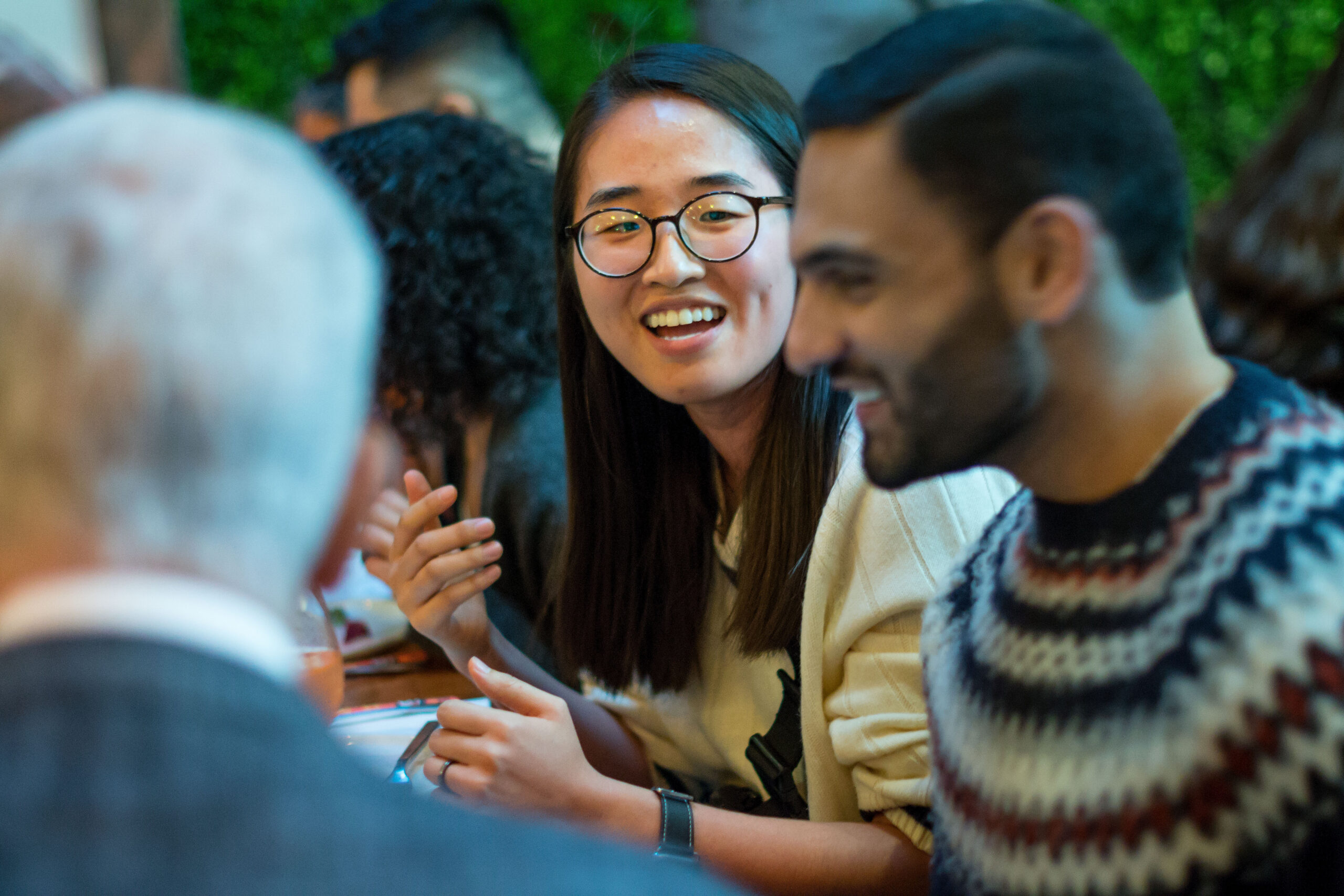 Read more: Kathy Ku Steps into Leadership as PDSFA Chair
Read more: Kathy Ku Steps into Leadership as PDSFA Chair- Board of Directors
- Fellowship News
Kathy Ku Steps into Leadership as PDSFA Chair
-
 Read more: Q&A with MD/PhD Student Silvia Huerta Lopez
Read more: Q&A with MD/PhD Student Silvia Huerta LopezQ&A with MD/PhD Student Silvia Huerta Lopez
-
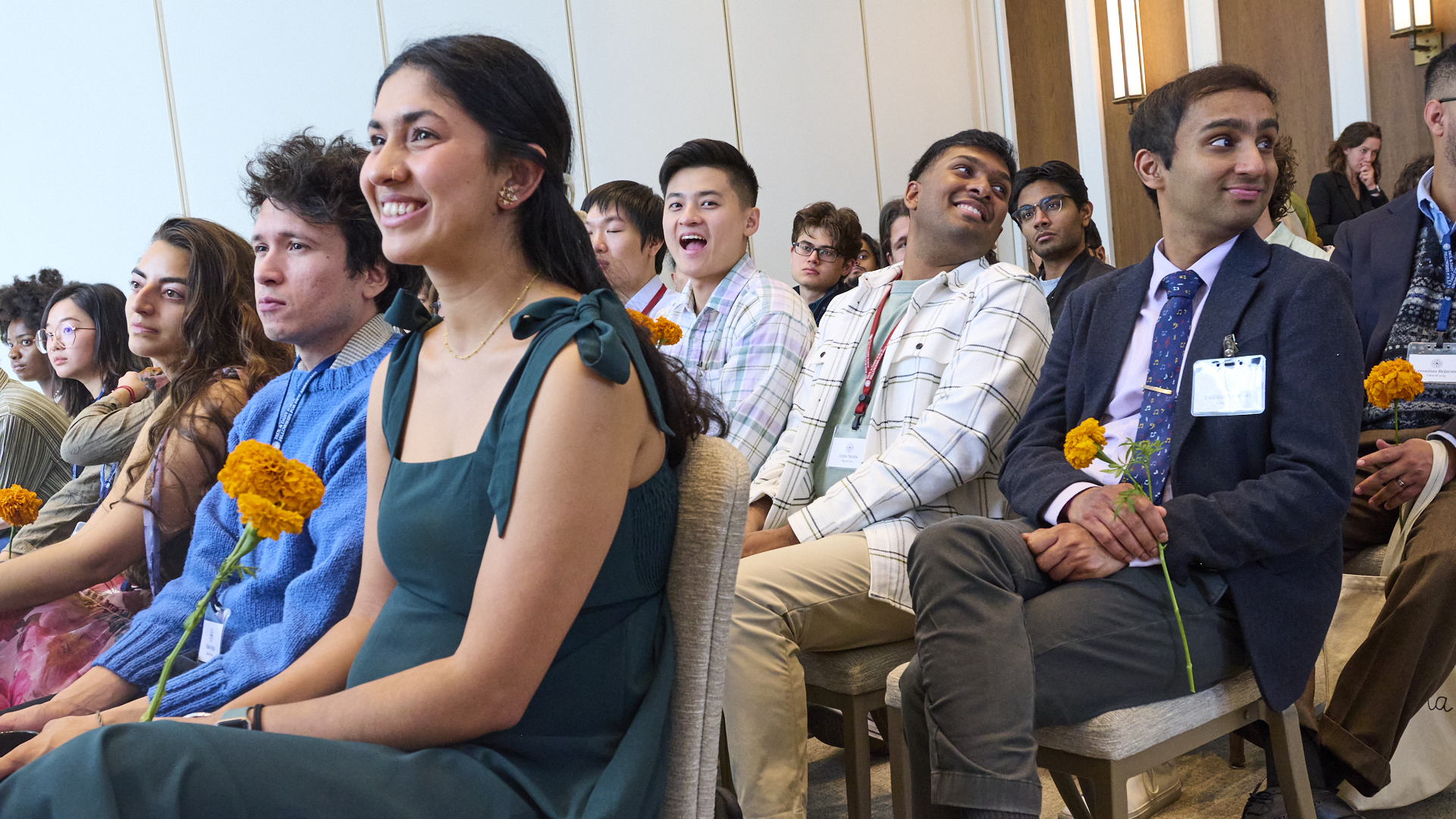 Read more: PD Soros Eligibility Guide for PhD Applicants
Read more: PD Soros Eligibility Guide for PhD Applicants- Applicant Information
PD Soros Eligibility Guide for PhD Applicants
-
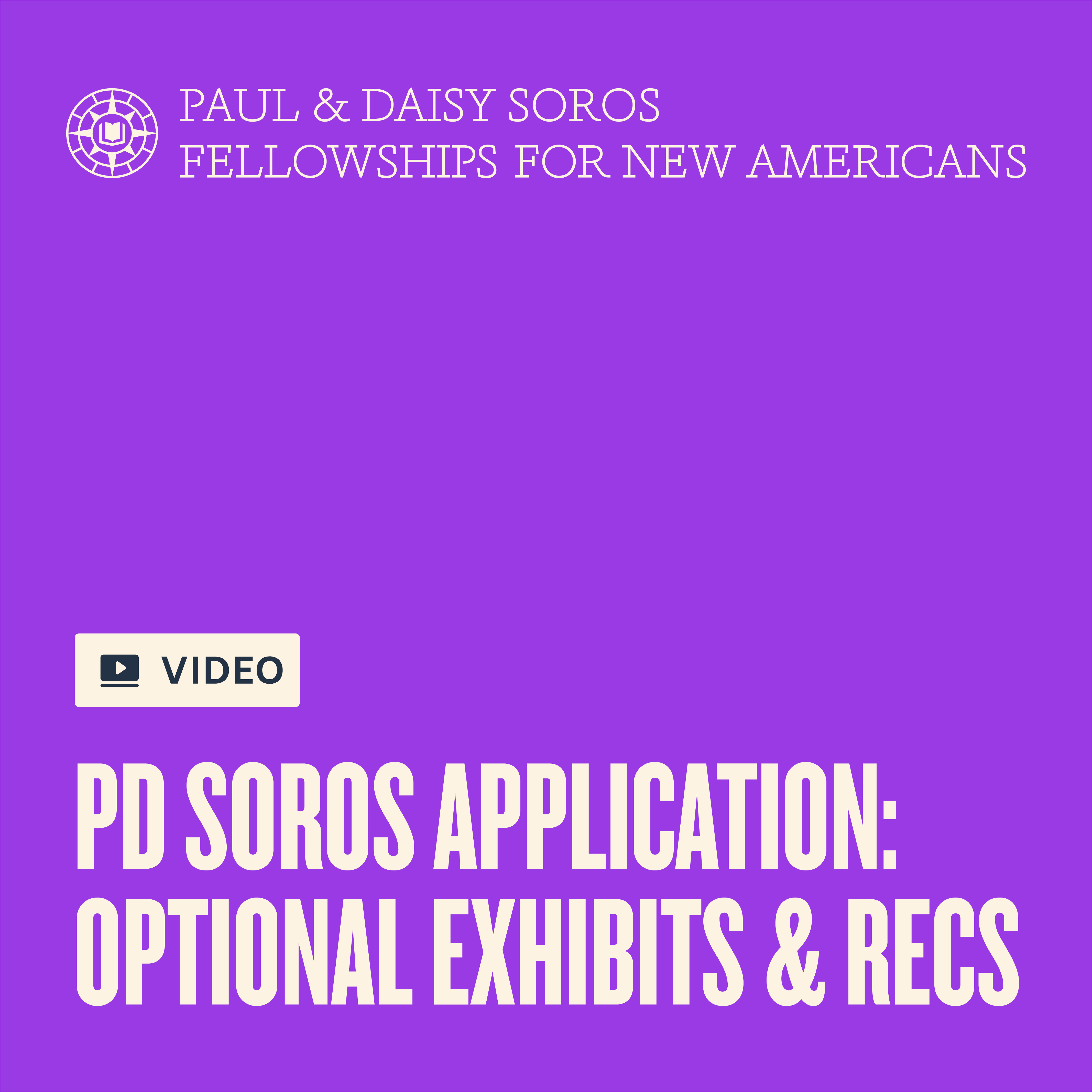 Read more: Watch: Optional Exhibits & Recommendations
Read more: Watch: Optional Exhibits & Recommendations- 2025 Information Sessions
Watch: Optional Exhibits & Recommendations
